
When my mom was finally, officially diagnosed with dementia in 2020, her geriatric psychiatrist told me that there was no effective treatment. The best thing to do was to keep her physically, intellectually, and socially engaged every day for the rest of her life. Oh, OK. No biggie. The doc was telling me that medicine was done with us. My mother’s fate was now in our hands.
My sister and I had already figured out that my father also had dementia; he had become shouty and impulsive, and his short-term memory had vaporized. We didn’t even bother getting him diagnosed. She had dementia. He had dementia. We—my family—would make this journey solo.
I bought stacks of self-help books, watched hours of webinars, pestered social workers. The resources focused on the basics: safety, food, preventing falls, safety, and safety. They all hit the same tragic tone. Dementia was hopeless, they said. The worst possible fate. A black hole devouring selfhood.
That’s what I heard and read, but it’s not what I saw. Yes, my parents were losing judgment and memory. But in other ways they were very much themselves. Mom still reads the newspaper with her pen, annotating “Bullshit!” in the margins; Dad still asks me when I’m going to write a book and whether I need cash to get home. They still laugh at the same jokes. They still smell the same.
Beyond physical comfort, my goal as their caregiver was to help them to feel like themselves, even as that self evolved. I vowed to help them live their remaining years with joy and meaning. That’s not so much a matter of medicine as it is a concern of the heart and spirit. I couldn’t figure this part out on my own, and everyone I talked to thought it was a weird thing to worry about.
Until I found the robot-makers.
Denne historien er fra March - April 2024-utgaven av WIRED.
Start din 7-dagers gratis prøveperiode på Magzter GOLD for å få tilgang til tusenvis av utvalgte premiumhistorier og 9000+ magasiner og aviser.
Allerede abonnent ? Logg på
Denne historien er fra March - April 2024-utgaven av WIRED.
Start din 7-dagers gratis prøveperiode på Magzter GOLD for å få tilgang til tusenvis av utvalgte premiumhistorier og 9000+ magasiner og aviser.
Allerede abonnent? Logg på

MOVE SLOWLY AND BUILD THINGS
EVERYTHING DEPENDS ON MICROCHIPS-WHICH MEANS TOO MUCH DEPENDS ON TAIWAN. TO REBUILD CHIP MANUFACTURING AT HOME, THE U.S. IS BETTING BIG ON AN AGING TECH GIANT. BUT AS MONEY AND COLOSSAL INFRASTRUCTURE FLOW INTO OHIO, DOES TOO MUCH DEPEND ON INTEL?
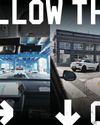
FOLLOW THAT CAR
CHASING A ROBOTAXI FOR HOURS AND HOURS IS WEIRD AND REVELATORY, AND BORING, AND JEALOUSY-INDUCING. BUT THE DRIVERLESS WORLD IS COMING FOR ALL OF US. SO GET IN AND BUCKLE UP.
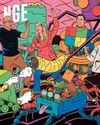
REVENGE OF THE SOFTIES
FOR YEARS, PEOPLE COUNTED MICROSOFT OUT. THEN SATYA NADELLA TOOK CONTROL. AS THE COMPANY TURNS 50, IT'S MORE RELEVANT-AND SCARIER-THAN EVER.

THE NEW COLD WARRIOR
CHINA IS RACING TO UNSEAT THE UNITED STATES AS THE WORLD'S TECHNOLOGICAL SUPERPOWER
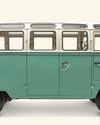
CALIFORNIA DREAMIN'
KINDRED MOTORWORKS VW BUS - Despite being German, the VW T1 Microbus is as Californian as the Grateful Dead.
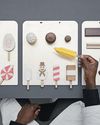
THE INSIDE SCOOP ON DESSERT TECH
A lab in Denmark works to make the perfect ice cream. Bring on the fava beans?
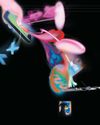
CONFESSIONS OF A HINGE POWER DATER
BY HIS OWN estimation, JB averages about three dates a week. \"It's gonna sound wild,\" he confesses, \"but I've probably been on close to 200 dates in the last year and a half.\"

THE WATCHFUL INTELLIGENCE OF TIM COOK
APPLE INTELLIGENCE IS NOT A PLAY ON \"AI,\" THE CEO INSISTS. BUT IT IS HIS PLAY FOR RELEVANCE IN ALL AREAS, FROM EMAIL AUTO-COMPLETES TO APPS THAT SAVE LIVES.

COPYCATS (AND DOGS)
Nine years ago, a pair of freshly weaned British longhair kittens boarded a private plane in Virginia and flew to their new home in Europe.
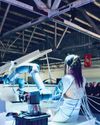
STAR POWER
The spirit of Silicon Valley lives onat this nuclear fusion facility's insane, top-secret opening ceremony.